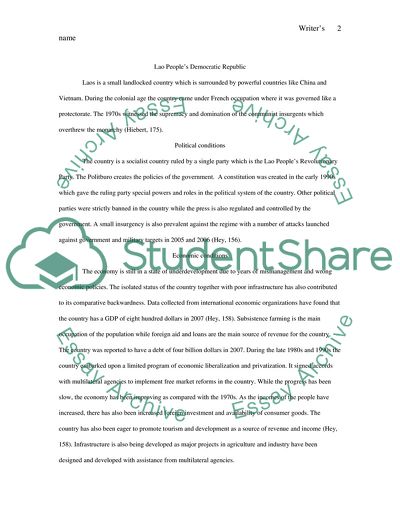Cite this document
(“Laos Essay Example | Topics and Well Written Essays - 2000 words”, n.d.)
Laos Essay Example | Topics and Well Written Essays - 2000 words. Retrieved from https://studentshare.org/miscellaneous/1550342-laos
Laos Essay Example | Topics and Well Written Essays - 2000 words. Retrieved from https://studentshare.org/miscellaneous/1550342-laos
(Laos Essay Example | Topics and Well Written Essays - 2000 Words)
Laos Essay Example | Topics and Well Written Essays - 2000 Words. https://studentshare.org/miscellaneous/1550342-laos.
Laos Essay Example | Topics and Well Written Essays - 2000 Words. https://studentshare.org/miscellaneous/1550342-laos.
“Laos Essay Example | Topics and Well Written Essays - 2000 Words”, n.d. https://studentshare.org/miscellaneous/1550342-laos.


